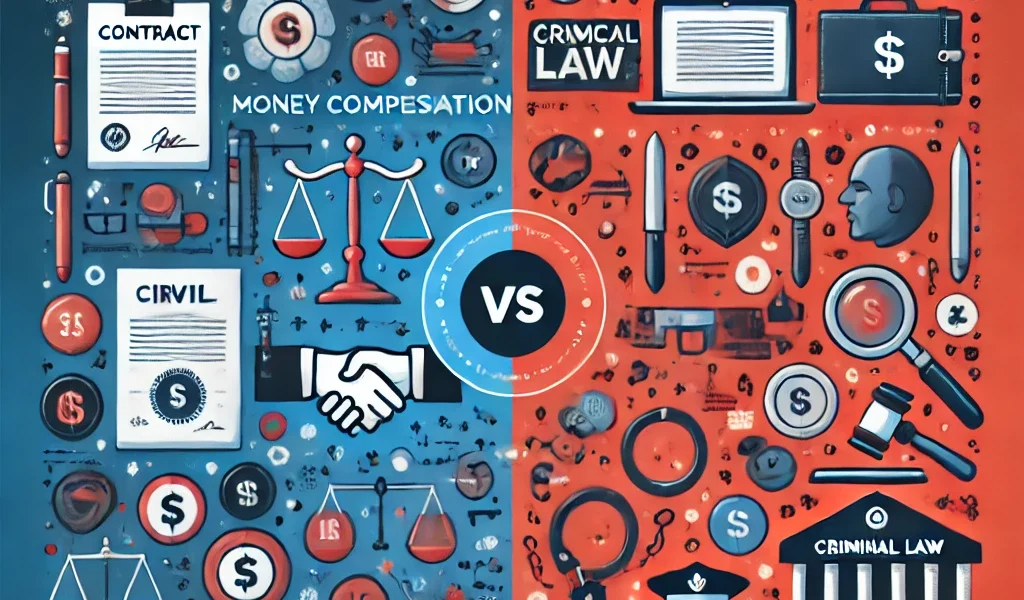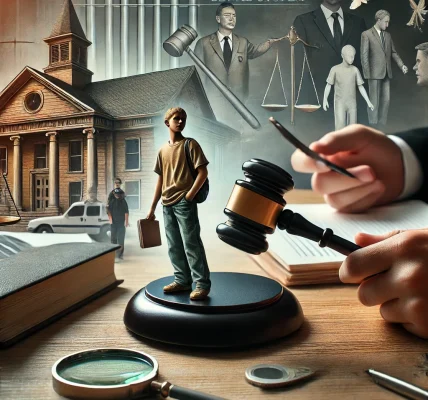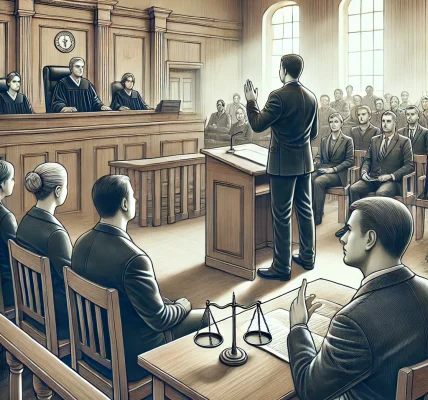The legal system is vast and complex, but at its core, it can be divided into two primary categories: civil law and criminal law. While both are designed to regulate behavior and maintain order in society, they serve different purposes, involve different legal processes, and have distinct consequences. This comprehensive guide will help you understand the fundamental differences between civil and criminal law, their implications, and their significance in the legal system.
What is Civil Law?
Civil law deals with disputes between individuals, organizations, or entities. It primarily focuses on resolving conflicts and providing remedies to the aggrieved party rather than punishing offenders.
Key Aspects of Civil Law:
- Purpose: The main goal of civil law is to resolve disputes and provide compensation to the injured party.
- Types of Cases:
- Contract disputes
- Property disputes
- Family law cases (divorce, child custody)
- Employment disputes
- Personal injury claims
- Burden of Proof: In civil cases, the burden of proof lies with the plaintiff (the party filing the lawsuit) and is based on the “preponderance of evidence,” meaning it must be more likely than not that the defendant is responsible.
- Outcome: Civil cases usually result in monetary compensation, injunctions, or specific performance rather than imprisonment.
- Legal Representation: While individuals can represent themselves in civil cases, hiring a lawyer is often beneficial for a stronger case.
- Examples:
- A landlord suing a tenant for unpaid rent.
- A person suing a company for defective products.
What is Criminal Law?
Criminal law, on the other hand, involves laws that define offenses against the state or society. The government (prosecution) brings charges against an individual or entity accused of committing a crime.
Key Aspects of Criminal Law:
- Purpose: The main objective of criminal law is to maintain social order by deterring and punishing unlawful behavior.
- Types of Cases:
- Homicide and assault
- Theft and fraud
- Drug offenses
- White-collar crimes
- Traffic violations
- Burden of Proof: In criminal cases, the prosecution must prove the defendant’s guilt “beyond a reasonable doubt,” which is a much higher standard than in civil cases.
- Outcome: Convictions in criminal cases can lead to penalties such as fines, community service, probation, or imprisonment.
- Legal Representation: Defendants in criminal cases have the right to legal counsel, and if they cannot afford one, the court appoints a public defender.
- Examples:
- A person being prosecuted for burglary.
- An individual facing charges for drug possession.
Key Differences Between Civil and Criminal Law
| Aspect | Civil Law | Criminal Law |
|---|---|---|
| Purpose | Resolves disputes and compensates victims | Punishes offenders and maintains order |
| Parties Involved | Plaintiff vs. Defendant | Prosecution vs. Defendant |
| Burden of Proof | Preponderance of evidence | Beyond a reasonable doubt |
| Penalties | Monetary damages, injunctions | Fines, imprisonment, probation |
| Legal Rights | No right to a court-appointed attorney | Right to an attorney and fair trial |
| Examples | Contract disputes, personal injury claims | Theft, murder, assault |
Overlapping Cases: When Civil and Criminal Law Intersect
Some legal matters can fall under both civil and criminal law. For example:
- Assault & Battery: A person accused of assault may face criminal charges from the state and a civil lawsuit from the victim seeking damages.
- Fraud: A business engaged in fraudulent activities may be prosecuted criminally and sued for financial compensation in civil court.
- Wrongful Death: If someone dies due to another person’s negligence or wrongdoing, the responsible party may face criminal charges for manslaughter and a civil lawsuit for wrongful death.
Why Understanding the Difference Matters
Knowing the distinction between civil and criminal law is crucial for:
- Legal Awareness: Understanding your rights and responsibilities in various legal situations.
- Effective Legal Action: Knowing whether to file a civil lawsuit or press criminal charges when seeking justice.
- Protection of Rights: Ensuring that individuals accused of crimes receive fair legal representation and due process.
- Business and Personal Decision-Making: Avoiding legal pitfalls by adhering to both civil and criminal laws in business and personal affairs.
Conclusion
While civil and criminal law serve different functions, they are both essential to maintaining justice and order in society. Civil law resolves private disputes, while criminal law punishes wrongdoing to protect the public. Understanding these differences can help individuals navigate legal issues effectively, whether they are pursuing a claim or defending their rights in a court of law.




